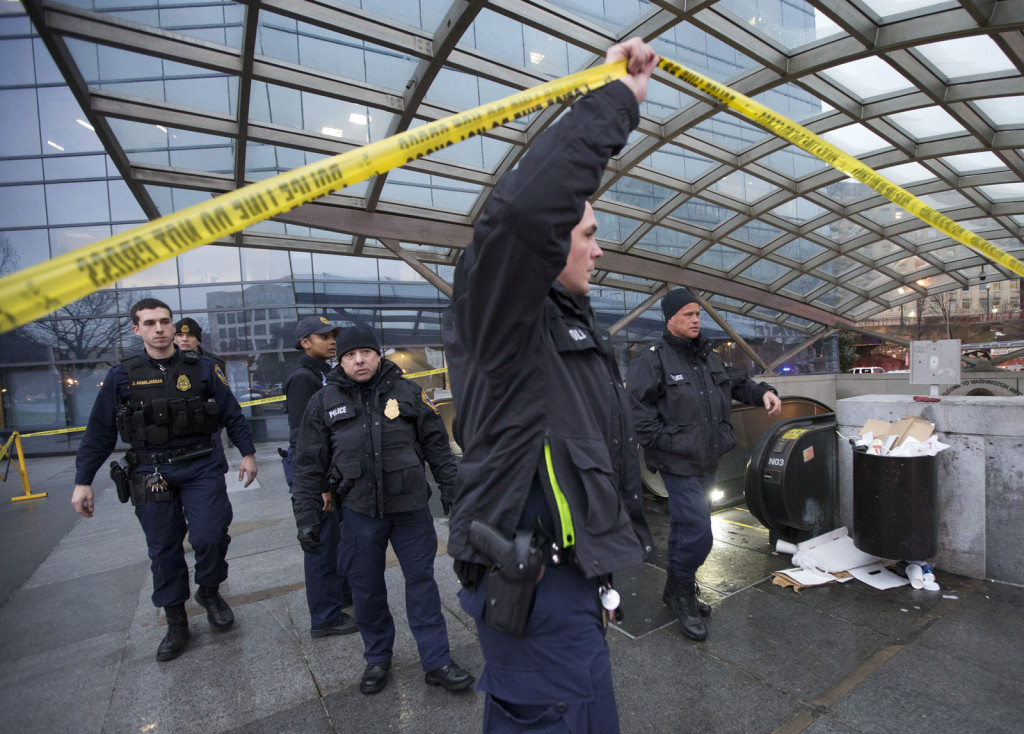
D.C. leaders are questioning the policing practices of Metro Transit Police after a rash of reported racial profiling incidents.
During a public hearing Tuesday, D.C. Council members had difficulty with the idea that Metro Transit Police didn’t have oversight from anyone but Metro.
Though Metro Transit Police also operate in Maryland and Virginia, D.C. Council member Robert White pointed out that the department doesn’t answer to any of them.
“All agencies need oversight. It’s part of [the] reason for this hearing today,” said White ahead of the Tuesday’s roundtable, which included hours of public witness testimony. The hearing focused on Metro policing practices and its impact on communities of color, which led to questions of profiling and transparency.
“Some of [the] indications are in its stop data. Our fare evasion report showed the MTPD was enforcing fare statute almost exclusively on black people,” said Emily Gunston with the Washington Lawyers’ Committee for Civil Rights.
She cited data that MTPD officers stopped 17,000 riders for fare evasion in 2018. “Almost all who are black. This broken window theory of policing is not effective and it’s discriminatory,” Gunston said.
“Where is the oversight?” asked disabled veteran Michael Sindram, who said his number has been blocked by MTPD after he repeatedly called asking for improvements to the Metro Assist system.
Dozens of public witnesses shared their negative experiences with MTPD and suggested creating a citizen oversight board and making data around police stops public.
However, one teenage witness, who is on the Metro Yes Youth Advisory Committee, said she is recruiting other students to work with police to improve communication with the younger community, which often is subject to fare evasion enforcement.
D.C. Council member Charles Allen made another suggestion to Metro Transit Police Chief Ron Pavlik.
“I think you should have body-worn cameras, but obviously, I can’t force that. I’d encourage you to do that,” said Allen, who chairs the Committee on Public Safety and the Judiciary.
“There are pros and cons depending on what study you look at,” Pavlik said in response. “Our Metrorail system is well camera’ed [sic], to say the least. There are very few areas in the system not covered by [closed circuit TV] already.”
Pavlik said he believes that residents don’t consider his officers to be members of their community, and that breaking down barriers has been difficult.
“Unfortunately, they don’t contact their MTPD officer unless something bad happens,” he said, to which Allen agreed.
Pavlik testified that while there are no quotas for arrests for his officers, their performance is assessed based on the arrests and tickets they issue.
“I think it’s something that your officers should look at — how can you evaluate the performance of officers other than arrests and citations?” White said.
Pavlik said both Maryland and Virginia require at least 18 hours of training a year for MTPD officers. D.C. has no training requirement.
He added that they complete implicit bias, human trafficking, cultural diversity and intellectual disability development trainings, to name a few.








